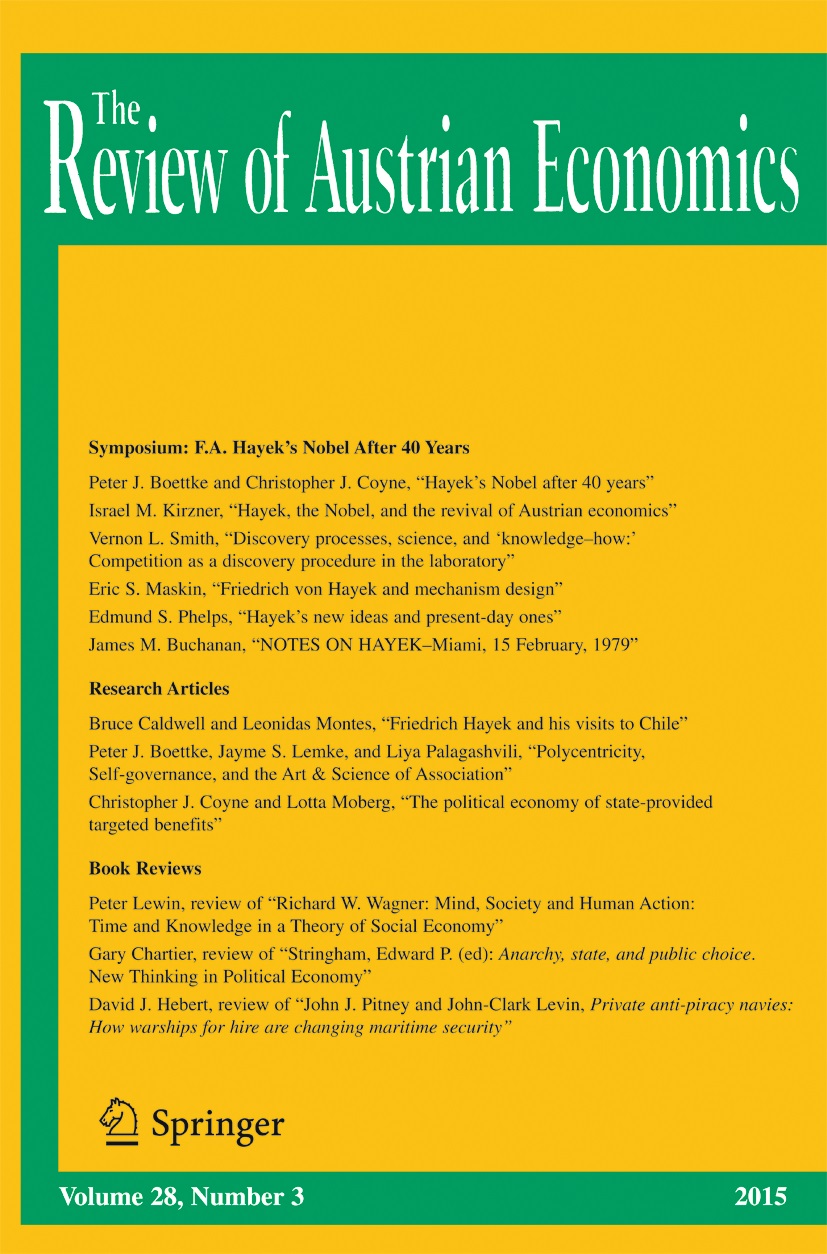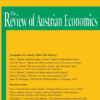Executive Summary
We investigate the claims of behavioral paternalism in the more realistic framework of complex choice. In particular, we analyze the claims made by behavioral paternalists that predictive analytics over large amounts of data will make it possible to target and successfully implement purportedly welfare-enhancing nudges deemed to make nudged agents better off “as judged by themselves” (AJBT). We draw parallels between the socialist calculation debate and nudge theoretical arguments, particularly the libertarian socialism of H. D. Dickinson and the libertarian paternalism of Cass Sunstein and Richard Thaler. We find that if actual idealized behavior is a more complicated process of recursive feedback using a knowledge classification method, behavioral paternalists engaging in an automatized process of notice-and-comment rulemaking using Big Data methods still encounter epistemological problems and the problems associated with radical uncertainty unearthed during the socialist calculation debate and afterwards.




